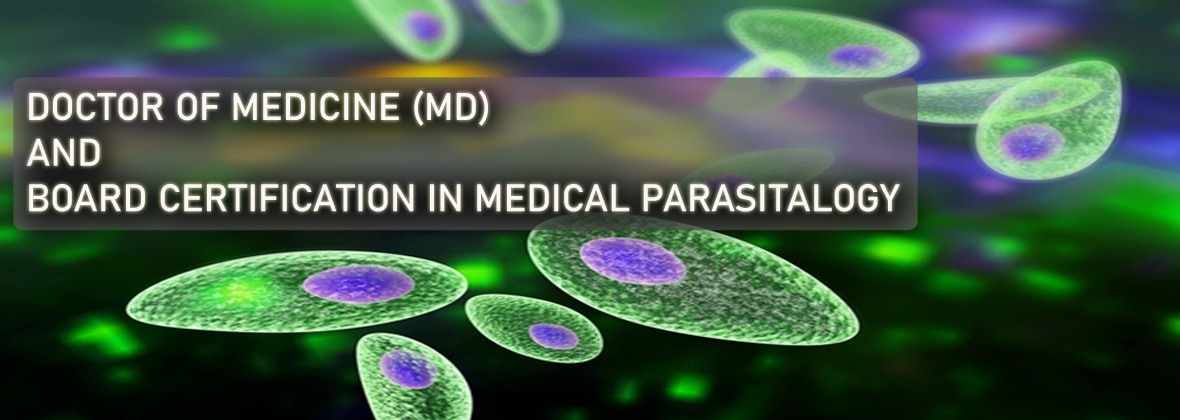
![]()
The MD Medical Parasitology and Board Certification are the second and third stages of a three-part training programme conducted by the PGIM’s Board of Study in Microbiology for those who wish to specialize in the field of Medical Parasitology. The first stage of the training programme, the Diploma in Medical Microbiology, lays the foundation for MD training in several specialties’ including Medical Microbiology, Medical Virology, Medical Parasitology and Medical Mycology.
The first MD Medical Parasitology training programme was launched in 1992. Since then it has been reviewed and revised to serve the evolving needs of the country in relation to the field of Medical Parasitology. The last set of amendments incorporated several changes recommended by the Board of Study with regard to the training programme and the assessments subsequent to receipt of the External Examiner’s Report in 2009.
The current amendments incorporate new assessment formats adopted by the Board of Study in Microbiology in the period since 2009, as well as changes recommended by the Board of Management of the PGIM with regard to all programmes of study. It is placed at Level 12 of the Sri Lanka Qualifications Framework (the highest level) and requires a minimum period of 5 years of training: 3 years pre-MD and 2 years post-MD.
![]()
Those who are Board Certified as Specialists in Medical Parasitology should be:
- able to organize, manage and direct a diagnostic laboratory for Medical Parasitology
- able to provide clinicians with advice regarding diagnosis and treatment of parasitic infections, when requested
- able to plan and carry out a research project in the field of Medical Parasitology
- conversant with modern developments in the field of Medical Parasitology
- able to teach Medical Parasitology to undergraduates, post-graduates and paramedical personnel
The following learning outcomes are expected of a MD holder:
A. Scientific Basis of Medical Parasitology
- aetiology, pathogenesis, epidemiology and prevention of parasitic infections
- laboratory investigations for the diagnosis of parasitic diseases
- antiparasitic agents
B. Laboratory skills
- process samples sent for routine parasitological investigations in a clinical diagnostic
- laboratory
- report on parasitic pathogens in clinical samples
- work with due attention to quality assurance and laboratory safety
- instruct on collection and transportation of samples for parasitological diagnosis
C. Laboratory Management
- manage the Parasitological laboratory services and the work environment of a Medical Parasitology laboratory
D. Patient management
- advise clinicians on the investigation and management of patients with parasitic infections, including those who are immunocompromised
- rational use of antiparasitic agents and evidence-based practice
E. Public Health
- work in an interdisciplinary team to investigate and control parasitic and vector borne diseases of public health importance
F. Research
- design, conduct and report on a medical parasitology related research project
G. Professionalism and ethics
- Work in accordance with the highest standards of medical professionalism, adhering
- to ethical behavior at all times
H. Evidence based practice
- Critical evaluation of scientific literature and application to practice as a Medical
- Parasitologist
![]()
Applicants should have
- A medical degree registered with the Sri Lanka Medical Council and
- Completed an internship recognized by the Sri Lanka Medical Council and
- Completed one-year work experience in Sri Lanka, after internship and
- The Postgraduate Diploma in Medical Microbiology examination conducted by the PGIM. Not more than 4 years should have elapsed after the trainee has passed the examination.
Please refer to the relevant prospectus for the most up to date information. The prospectus of a particular programme contains official information pertaining to a programme approved by the Board of Management, University Senate and the University Grants Commission